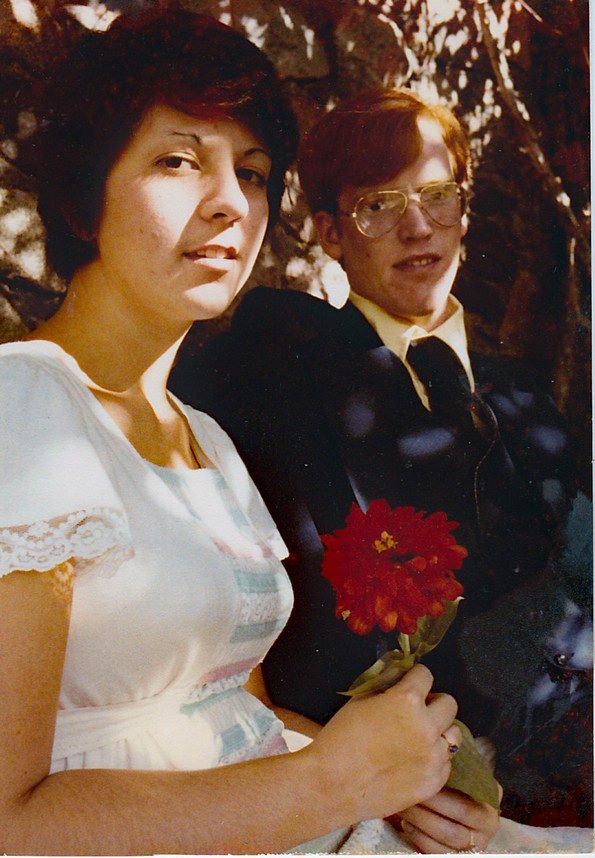
Recently, atheist luminary Matt Dillahunty had successful triple bypass heart surgery. After a two-week hiatus, Matt returned to his call-in talk show on The Line Network, The Hang Up. Matt took some time to detail what happened during his surgery. Two things stand out:
- The surgeon found no God-shaped hole in Matt’s heart
- The surgeon found no evidence of the law of God written on Matt’s heart
Matt, of course, was being funny. I chuckled when he said these things. I thought, man, how many times have Evangelicals told me that I have a God-shaped hole in my heart and that God has written his law on my heart?
Of course, these statements are meant to be “metaphors,” but as I shared in a 2021 post titled Can You Know Anything in Your Heart?, Evangelicals can be quite literal when it comes to the heart:
Evangelicals believe every human has a body, soul, and spirit. It’s evident to all of us that humans have bodies, but there’s no evidence outside of the Bible and the pronouncement of preachers that humans have a soul or spirit. Much like evidence for the existence of God, no one has ever seen a human soul or spirit.
Most Evangelicals believe humans are tripartite beings. If you are unfamiliar with this term, Wikipedia defines it this way:
In Christian theology, the tripartite view (trichotomy) holds that humankind is a composite of three distinct components: body, spirit, and soul.
I never believed the notion that humans were tripartite beings. Instead, I concluded that we were bipartite beings, consisting of a body and a spirit, that the words soul and spirit were used interchangeably in the Bible.
As a rationalist and an atheist, I concluded that there was no evidence for the existence of a human soul or spirit; there was no evidence for these things outside of the pages of the Bible. Christians and other religious people continue to try to prove the soul’s existence, but so far, they have miserably failed.
For those raised in Evangelical churches, we have likely heard preachers warn us countless times of missing Heaven by eighteen inches — the distance between the human mind and heart. According to these preachers, many Christians believe in Jesus only in their minds, not their hearts. They have “head knowledge,” not “heart knowledge.” As you likely know, intellectualism is frowned upon in many churches; that believing the right things in your mind is not enough for salvation, that you have to really, really, really believe the right things in your heart. Salvation requires the work of the Holy Spirit in your heart. Just believing the faith once delivered to the saints in your mind — assenting to a set of intellectual facts — is not enough. Unbelievers must have their hearts transformed to become born again.
Of course, the problem with this kind of thinking is that it is based on a false premise: that humans have a “heart” — the seat of the soul and spirit. Where is this heart located? Most Evangelicals point to the blood-pumping organ in their chest. The authors of the Bible certainly thought this was so. The Greek word most commonly used for heart in the New Testament is “kardia.” The only evidence Evangelicals have for the existence of the “heart” is the only evidence they have for a lot of things: THE BIBLE SAYS _________.
This is why it is difficult, if not impossible, to have rational discussions with Evangelicals. Press them on their beliefs, and more often than not, Evangelical believers will say, “I believe in my heart that the Bible is true, God is real, Jesus saved me, and I am going to Heaven after I die.” Instead of using their minds to think and reason, Evangelicals appeal to a part of them that does not exist. Everything they know and feel comes from their brain, not a mythical heart. Yet, because Evangelicals believe God, in the person of the Holy Spirit, resides in their “hearts,” it’s impossible to reach them with rational, intellectual arguments.
Renowned Evangelical apologist and philosopher William Lane Craig had this to say about the matter:
The way in which I know Christianity is true is first and foremost on the witness of the holy spirit in my heart. This gives me a self-authenticating means of knowing that Christianity is true, apart from the evidence. (Thanks Doctor DJ for the quote)
Craig makes his living from arguing for the existence of God, yet when it comes to where the proverbial rubber meets the road, Craig says that it is the witness of the Holy Spirit in his heart, not evidence, that proves to him Christianity is true.
Evangelicals-turned-atheists know where Craig is coming from. We too thought, at one time, that we knew Christianity was true because of the witness of the Holy Spirit in our hearts. It is difficult to move a believer away from this type of thinking, regardless of how irrational it seems. I have concluded that the only way to reach Evangelicals is to disabuse them of the notion that the Bible is inerrant and infallible. If you can get them to question the nature and history of the Bible, this can and does lead to doubt. And as those of us who used to be Evangelicals know, doubt is the first step away from Christianity. Once the Bible loses its power and authority, it is far easier to convince people that many of their beliefs are false.
Matt’s humor aside, I’m glad he survived heart surgery and is on the mend. Matt closed out this week’s show by saying God had yet another opportunity to take him out, yet did nothing. Why is that? I am starting to think that maybe, just maybe, God doesn’t exist, and that the only people who want Matt dead are oh-so-loving followers of Jesus.
Bruce Gerencser, 66, lives in rural Northwest Ohio with his wife of 45 years. He and his wife have six grown children and thirteen grandchildren. Bruce pastored Evangelical churches for twenty-five years in Ohio, Texas, and Michigan. Bruce left the ministry in 2005, and in 2008 he left Christianity. Bruce is now a humanist and an atheist.
Connect with me on social media:
Your comments are welcome and appreciated. All first-time comments are moderated. Please read the commenting rules before commenting.
You can email Bruce via the Contact Form.








